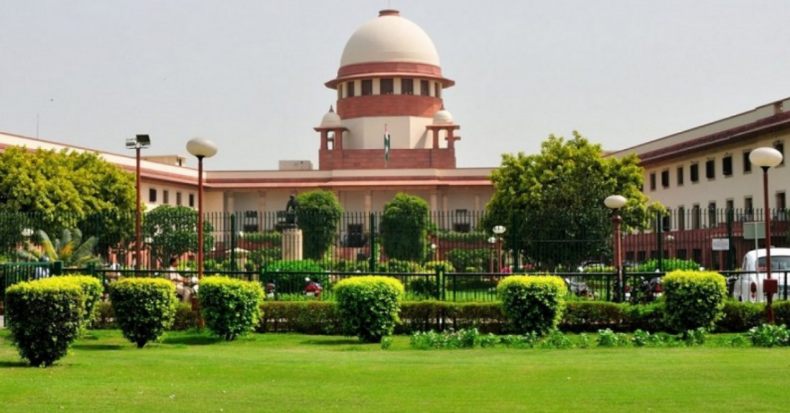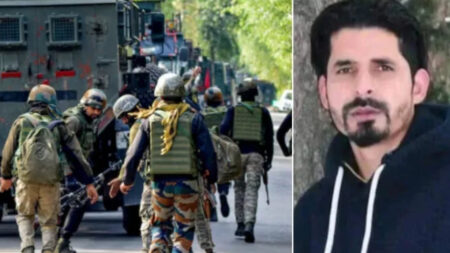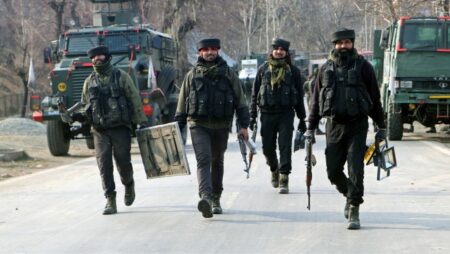The Supreme Court proposed a former judge from HC to oversee the investigation.
On Monday, the supreme court has proposed to appoint a retired judge from “a different High Court” to monitor investigations until charge sheets are filed, indicating that it is not confidential and do not wish Uttar Pradesh to continue with the judicial commission which was appointed to investigate the October 3 incidents in Lakhimpur Kheri. It requested a response from Uttar Pradesh by Friday.
The bench, led by Chief Justice of India N V Ramana, expressed displeasure with UP investigators’ “intermixing” of evidence in cases involving the deaths of farmers allegedly overrun by a convoy of three vehicles, and one of them was owned by Minister of State for Home Ajay Mishra, and other deaths, including a driver and two BJP workers, in the violence that ensued on October 3.
“It appears to us that this SIT (Special Investigation Team) is unable to maintain an investigation gap between the cases in some way,” he explained.
“If this process continues, it will come down to evaluating the oral testimony in one case against the oral evidence in the other.”
We’re seeking to get a retired judge from a different High Court to supervise the inquiry daily to guarantee that evidence… is recorded independently and that there is no overlapping or intermixing of evidence… We have our doubts… One of the three members on the bench, Justice Surya Kant, stated, “We do not want the judicial panel constituted by your state to remain.”
The bench, which also included Justice Hima Kohli, proposed the names of retired Punjab and Haryana High Court Impartialities Justice Ranjit Singh and Justice Rakesh Kumar Jain, and stated, “Let a previous judge watch everything till the chargesheets are completed and submitted.”
The bench made the proposal after finding that the testimony of several witnesses in the case involving the murder of the driver and two BJP officials overlapped with the case involving the death of four farmers.
It sparked questions about if this was being done to help a “certain accused.” “It looks that one specific accused is attempting to get an advantage by overlapping the two FIRs,” Justice Surya Kant added, without naming anyone.
Senior Advocate Harish Salve, who spoke on behalf of the UP government, said “he will seek directions on the recommendation.”
“That, my lord, shall be done, and I’m willing to follow directions. “The government has the power to nominate,” Salve told the bench.
Justice Pradeep Kumar Srivastava, a retired judge from the Allahabad High Court, constituted a one-man judicial panel to investigate the October 3 occurrences.
On October 3, a convoy of three cars, which belonged to Union Minister of State for Home Ajay Mishra, collided with a gathering of farmers protesting.
Two BJP members and the driver of one of the vehicles were slain in the ensuing conflict, and one of the victims was a journalist. In both incidents, police in Uttar Pradesh detained 17 people, including the minister’s son Ashish Mishra.
Maintaining that the two investigations are independent, Salve speculated that the mix-up occurred because of the few witnesses who had come forward to give statements in the case of the driver’s and BJP employees’ deaths were simultaneously giving statements in the case of the farmers’ deaths.
When witnesses come forward and request that their evidence be recorded, he says police cannot refuse.
He believes the confusion arose because the journalist was first thought to have perished in the aftermath of the incident, but it was later revealed that he, too, had been crushed by the trucks.
As a result, according to Salve, the inquiry into his death “had transferred to the FIR lodged in conjunction with the farmers’ death.”
That’s why the bench wanted an impartial judge to keep an eye on things until the charge sheet was filed, according to the court.
The cause of death of the journalist, according to Justice Surya Kant, was “completely different… The image that was intended to be conveyed was that this journalist had been battered to death.”
“They were all crushed by the automobile,” Salve added, adding that “the difficulty is” that there were thousands of people on the scene and that whatever is going on has political connotations.
“We don’t want any political connotations,” the CJI stated, supporting the bench’s decision that the inquiry is overseen by a retired High Court judge. He told Salve, “Find out from your government.”
The CJI informed the senior counsel right away that “nothing in the status report except some additional witnesses interviewed” and that “lab reports (had) not yet arrived. “It’s beyond our control,” Salve added.
They’ve stated that they’ll give by November 15.” The bench then questioned him on the seizure of the accused’s phones, inquiring why just the phone of crucial defendant Ashish Mishra had been taken.
“What about the other accused’s cell phones?” Justice Kohli inquired.
“Some of the defendants have stated that they do not own a cell phone. “However, all of their call data records have been retrieved,” Salve said. Justice Kohli questioned whether he was implying that none of the other defendants had phones on them.
Salve said they had thrown away their phones and didn’t have any, but the police could retrieve the CDRs. He stated that the incident’s CCTV footage was awaiting certification.
According to Justice Surya Kant, the gathering of evidence in the FIR connected to the killing of farmers must be an “independent process.”
Ruby Devi, the wife of deceased BJP worker Shyam Sunder, was represented by Senior Advocate Arun Bharadwaj, who voiced his dissatisfaction with the investigation and demanded that his case be turned over to the CBI.
The man “came out,” according to Salve (of the vehicle). Farmers slammed into him, and police attempted to keep him safe. Farmers had beaten these folks, and police were trying to save them.”
The bench reminded Bharadwaj that “the CBI is not the solution to everything” and that he might present his evidence before the judge who was intended to oversee the investigation.













